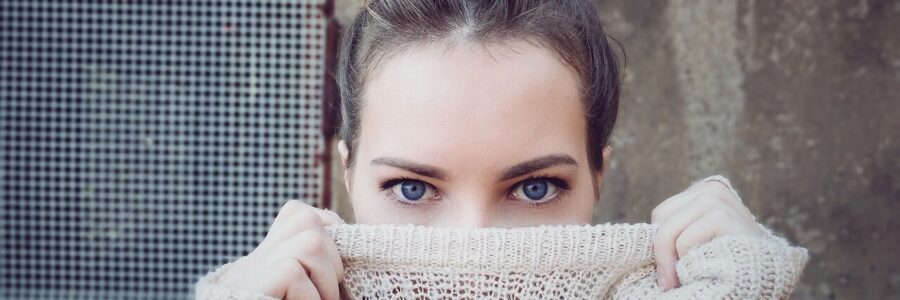The holidays are around the corner which mean heightened emotions (for better or worse!), flowing libations and possibly vacations to far-away places. For most of us, it’s an enjoyable time of year. But for some, it means a season full of redness that we could do without.
If this sounds like you, you probably have Rosacea (rose-AY-sha) a very common skin condition. It often begins with a tendency to blush or flush more easily than other people. But then, as time goes on, the redness starts to slowly spread from the nose and cheeks to the forehead and chin. Rosacea can even creep over to the ears, chest, and back and appear red all the time.
There are four ways Rosacea usually presents:
- Erythematotelangiectatic rosacea: Redness, flushing, visible blood vessels.
- Papulopustular rosacea: Redness, swelling, and acne-like breakouts.
- Phymatous rosacea: Skin thickens and has a bumpy texture.
- Ocular rosacea: Eyes red and irritated, eyelids can be swollen, and the person may look like they have a sty.
Regardless of which presentation you have, the telltale sign is the permanent redness in the center of your face. And depending on the severity, it can sometimes impact one’s self-esteem.
Who gets Rosacea?
According to the U.S. government, more than 14 million people live with rosacea. Most people who get rosacea are:
- Between 30 and 50 years of age.
- Fair-skinned, and often have blonde hair and blue eyes.
- From Celtic or Scandinavian ancestry.
- Likely to have someone in their family tree with rosacea or severe acne.
- Likely to have had lots of acne — or acne cysts and nodules.
Women are slightly more likely than men to get Rosacea. But men are more likely to get severe Rosacea. While these stats are the norm, Rosacea cases have appeared in people of all ages, genders, and race.
What causes Rosacea?
There are definite triggers that cause Rosacea to flare. Typically, anything that causes the blood vessels to expand in the face will cause redness. These things include:
- Emotional factors (stress, fear, anxiety, embarrassment, etc.)
- Changes in the weather (strong winds, or a change in the humidity)
- Sun exposure and sun-damaged skin
- Exercise
- Alcohol consumption
- Smoking
- Holidays, particularly Christmas and New Year’s holidays
How does an Herbalist treat Rosacea?
An Herbalist will exam a patient’s overall constitution and lifestyle to discern all the contributing factors that cause their version of Rosacea. Once determined, the Herbalist will put together a custom herbal formula that will address all of the factors. As the patient responds to treatment and begins to heal, ingredients and amounts of herbs are adjusted to reflect those changes.
Since a holistic diagnosis goes beyond determining which skin condition a patient has, prospective patients can expect an initial intake with an Herbalist to include a comprehensive questionnaire/discussion that examines: the systems of your entire body, how your lifestyle interacts with these systems and how your psychological and emotional state/issues are affecting these systems.
Because this solution treats the whole body and is Holistic, it’s not uncommon during treatment to have other seemingly random symptoms resolve. Patients using herbal medicines have reported that their digestion, elimination, sleep, stress, and fill-in the blank is also better. The best part is that all herbal formulas are 100% natural, safe and cause no (adverse) side effects.
Need Help With Rosacea?
If you know someone who is suffering from rosacea and is interested in a natural solution, this video explains more about herbal medicine for dermatology and what a consultation is like.
Want to Learn More?
Click HERE to get the Amethyst Holistic Skin Solutions Newsletter. You’ll receive interesting information about skin health via articles, before/after pictures, case studies of Amethyst patients, videos, interviews and more. Feel free to share this article with someone who you think may benefit.
About the Author
Olivia Hsu Friedman, LAc, Dipl.OM, DACM, Cert. TCMDerm, is the owner of Amethyst Holistic Skin Solutions and treats Acne, Eczema, Psoriasis, and TSW. Olivia treats patients via video conferencing using only herbal medicine. Olivia is Chair of the Board of Directors of the American Society of Acupuncturists, serves on the Advisory Board of LearnSkin, and is a faculty member of the Chicago Integrative Eczema Group sponsored by the National Eczema Association.



